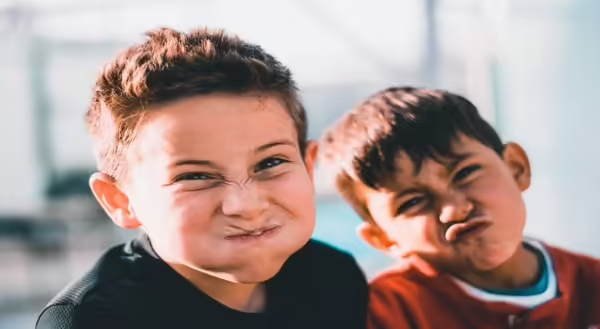
Do you remember your first childhood friend? Do you still have friends that you keep in touch with from school or work? Humans are social creatures and we enjoy and do better being around others. So, knowing how to make and keep friends is an important skill for young children to learn.
For preschool and school-age children, friends are fun to have around. They can also be important to being successful in school! The Illinois Early Learning Project shares some facts about friendships, the benefits of having friends and how parents can help their child learn to be a good friend.
Young children who know how to form and maintain close friendships tend to adjust well to school, do well in classes, and tend to have high self-esteem. They also learn important social skills such as cooperation and problem-solving. People who learn at an early age to make and keep close friends tend to engage in fewer risky behaviors as teens and have fewer mental health problems as adults than those who have no close childhood friends.
The best social skills teacher of all can be the example a parent or caregiver can set in their daily interactions with others. You know the saying - actions speak louder than words!
Children learn how to make and keep friends when their parents:
- Model cooperation and kindness with other people, including neighbors, shopkeepers, and teachers
- Invite friends over and find times for their child to play with others
- Talk to their child about what it means to be a “host” and how to look out for another child’s needs
- Help their child learn how to listen to others’ ideas
- Discuss fairness with their child—how to take turns, how to share, and how to solve problems
- Help their child learn words to express feelings
- Discuss the importance of being honest and loyal with friends
- Discourage hurtful behaviors in their child, and offer other ways to solve problems
- Talk to their child about being kind and helpful to others
- Help their child recognize and respond to others’ feelings
For more information about early childhood development topics, check out The Illinois Early Learning Project, which provides evidence-based, reliable information on early care and education for parents, caregivers, and teachers of young children in Illinois.